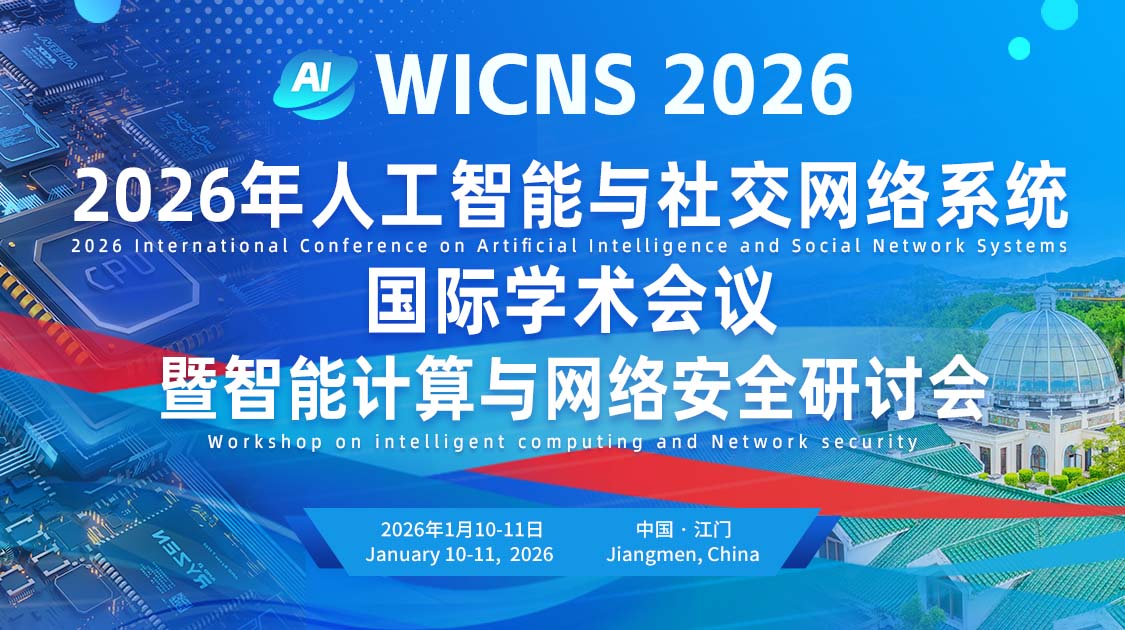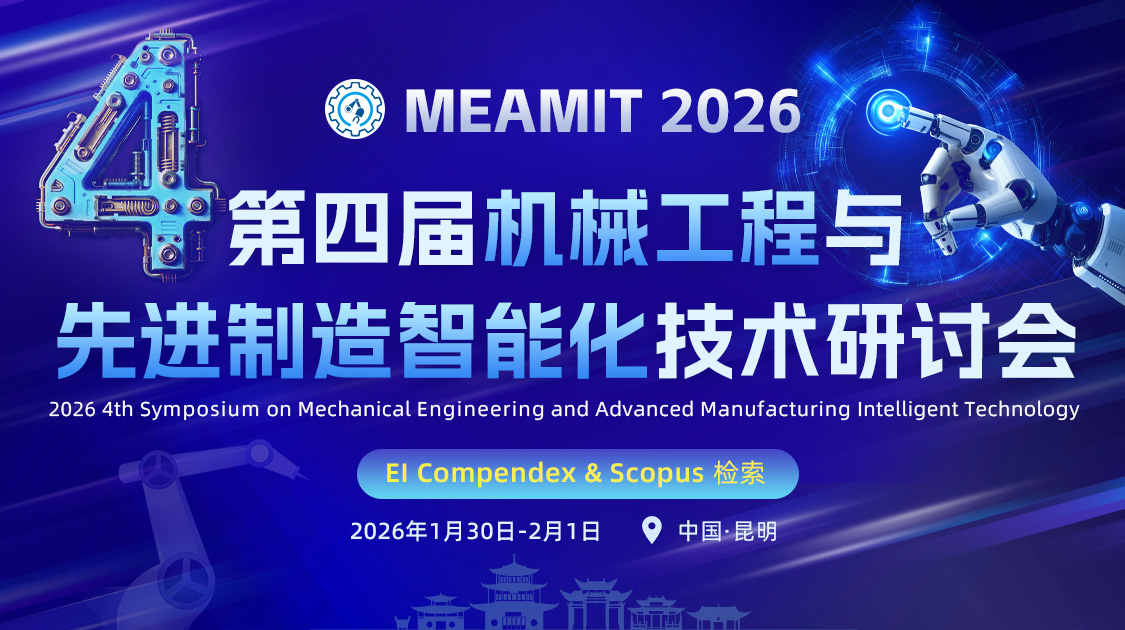
第11届IEEE国际数据科学与高级分析国际会议(DSAA2024)
The 11th IEEE International Conference on Data Science and Advanced Analytics
 美国
美国
 2024年10月06日-2024年10月10日
2024年10月06日-2024年10月10日
开会时间: 2024-10-06
会议地点: San Diego, CA, United States
网址:https://dsaa.co/
Key DatesKey Dates
| Special Session Proposal Due | March 14, 2024 |
| Special Session Proposal Notification | March 26, 2024 |
| JDSA Journal Track Submission MLJ Journal Track Submission (Round 1) |
April 15, 2024 |
| Tutorial Proposal Submission | April 24, 2024 |
| Paper Submission | May 2, 2024 |
| MLJ Journal Track Submission (Round 2) Tutorial Proposal Notifications |
May 15, 2024 |
| Paper Notification | July 24, 2024 |
| Paper Camera-ready MLJ Revision Submission |
August 21, 2024 |
| DSAA 2024 Conference Starts! | October 6, 2024 |
DSAA Introduction
The IEEE International Conference on Data Science and Advanced Analytics (IEEE DSAA) is fully sponsored by the IEEE through the IEEE Computational Intelligence Society and technically sponsored by ACM through SIGKDD and the American Statistical Association. DSAA was initiated in 2014 as the first IEEE conference dedicated to data science and analytics and received strategic support from the IEEE Big Data Initiative. The IEEE Task Force on Data Science and Advanced Analytics (TF-DSAA) governs the DSAA conferences.
DSAAs have been hosted in Asia, America, and Europe iteratively by experienced high-profile general and program chairs. DSAA provides a premier data science forum that brings together researchers, industry/government practitioners, and end-users of big data for discussion and exchange of original findings, state-of-the-art achievements, and best practices on data-intensive statistics, mathematics, analytics, learning, computing, and informatics and their applications. DSAA sets up a high standard including 10-page submissions in the IEEE double-column format, double-blind review, high-profile general and program chairs, prestigious keynote speeches, a competitive acceptance rate, and the next-generation data scientist award.
DSAA solicits both significant theoretical and practical progress on data science and advanced analytics. DSAA has two main tracks: Research and Application, a series of Special Sessions, and a unique Trends and Controversies session, in addition to a journal track, a student poster track, an industry poster track, tutorials, and a pre-conference industry day with prestigious invited industry talks. DSAA special sessions substantially upgrade conventional workshops to encourage emerging topics in data science while maintaining rigorous paper review and selection criteria.
DSAA is competitively recognized by Google Metrics and conference ranking such as in the category of Theories of Computer Science by the China Computer Federation.
Organizers
General Chairs
Huan Liu ,Arizona State University
Vipin Kumar,University of Minnesota
DSAA TopicsDSAA Topics
DSAA encourages submissions on original and significant theoretical research achievements and best practices of data-driven advanced analytics, computing, discovery, machine learning, management, optimization, statistics, and their applications. Typical topics include but are not limited to:DSAA encourages submissions on original and significant theoretical research achievements and best practices of data-driven advanced analytics, computing, discovery, machine learning, management, optimization, statistics, and their applications. Typical topics include but are not limited to:
Data science foundations
- Data characteristics and complexities
- Interactions, couplings, relations, and heterogeneities
- Factors, structures, relations and distributions
- Mathematical, probabilistic, and statistical theories and models
- Learning theories, models, and systems
- Information theories for analytics and learning
- Deep analytics and deep learning
- Cognitve, neural and human learning methods
- Intent and insight learning
- Inference, regularization and optimization
Analytics, learning, and optimization
- Heterogeneous and mixed analytics
- Multi-domain/media/modal/source/view/task learning
- NLP, text and document analysis
- Temporal, sequential and geo-spatial analysis
- Graph, tree, group and community analysis
- Web, online and network analysis
- Adaptive, continual, online, stream and real-time analytics
- Distributed, parallel and high-performing analytics
- Large-scale and scalable analytics
- Descriptive, predictive and prescriptive analytics
Infrastructure, management, and processing
- Data pre-processing, sampling and augmentation
- Feature engineering and transformation
- High-performance, parallel and distributed computing
- Analytical system architectures and infrastructure
- Heterogeneous data/information integration, matching and sharing
- Crowdsourcing, cloud and edge computing
- Post-processing and post-mining
- Human-learning interaction and interfaces
- Web, social web and distributed search
- Indexing and query processing
- Information and knowledge retrieval
- Personalized search and recommendation
Evaluation, applications, and tools
- Complexity, efficiency, effectiveness, and scalability
- Quality, fairness, bias, and evaluation
- Social and economic impact and actionability
- Presentation and visualization
- Analytical and visualization languages and toolkit
- Business and government analytics
- Online, mobile, IoT, social, living analysis
- Domain-specific applications
- Anomaly, fraud, exception, change, event and crisis
- Ethics, integrity and regulation
- Security, trust, diversity, and risk
- Privacy-preserving analytics
- Reproducibility, explanation and interpretability
 重要时间
重要时间












